On Indigenous Wisdom, and Sharing Privilege
"Você pode sair da Floresta,
mas a Floresta não vai sair de você." *
Deh Bastos – Puyanawa Territories, Amazon Rainforest, July 2023
*– You can leave the Amazon, but the Amazon will never leave you.
Reading time: 7 minutes.
Sometimes not sharing something at all is just as dishonouring as sharing it from the wrong place.
Over the last 3 years, I spent over 80 days in the Amazon Rainforest hosted by indigenous communities — and countless days integrating the experience. I’m still integrating, and by now I know that I probably will for the rest of my life.
At first, I took refuge in not sharing much about it.
I tried, and it didn't feel right. "I'm not ready" I thought. "I'm still integrating".
But the truth is that I secretly liked the comfort – the idea of not even exposing myself to the risk of unconsciously dishonouring the cultures whose wisdom, generosity and practices were (and still are) literally changing my life.
I was raised in a family that has as one of its cornerstones the respect of foreign and ancient cultures.
I also had the opportunity to personally listen to indigenous leaders explain what happens when people appropriate their images, crafts and practices – and how it hurts them and their people on more levels that we tend to consider. So I wanted to stay away from it as much as possible.
Until it dawned on me.
That to be able to learn by the side of indigenous leaders, and to dive into sacred practices under their direct guidance and invitation is a privilege — one that is not mine to keep.
One that feels meant to be shared.
For, in my view, there are two key ways indigenous wisdom can spread:
- through the voices of its people and leaders, and their direct teachings
- through non-indigenous people sharing their embodied experience.
So while I have no desire or authority to represent their voices, I do have learnings from my personal journey to offer: a version of their wisdom distilled through my specific and personal lenses, experience and life.
~
But why even bother, Meg?
(Don't we all love our Doubt Voices)
I asked myself this question a thousand times as I make my way through a(nother) cycle of 40 Days of Integration, a protocol I developed to help me land after deeply transformative experiences – built on top of the guidance and tools of the therapists and experts who supported me over the years.
It's a valid question.
There's huge value in keeping precious experiences for ourselves, for our whole life if that's what feels right. And knowing about the traps of this perfomance-oriented 21st century, do I really need to share?
And yet, one thousand and one times another, much stronger question kept emerging:
how can I honour my privilege?
I believe we all are, consciously or unconsciously, craving the wisdom and wealth of indigenous cultures: the deep connection with nature, the different ways to relate to life and to each other, the wealth of traditions and identity, and more. I see it especially in the impact and climate justice space.
But I also know it's tricky, for there's nothing harder than trying to re-integrate ancient and indigenous wisdom in a culture that is deeply disembodied, disconnected from nature, fostered on unhealthy relating models and/or straight up intoxicated both in bodies and in minds.
And that craving, in those states, can get out of hands.
So as I step into day 10 of this integration cycle, all I know is that in a ocean of (to me) extractive and appropriative examples of how that can go wrong, I want to try to build better bridges.
Or, as a friend and Aboriginal culture expert once told me – to be a better bridge myself. Through my own embodied experience.
Because, sometimes, not sharing something at all might be as dishonouring as sharing it from the wrong place.
~
So what does this mean?
It means this is officially an experiment – one that might last a few months or several decades. Who knows.
It means that "how can I honour my privilege?" becomes a key question I hold at heart. I continue to learn, and I might not always get it right, but I promise to do my best to answer this question every day — and each time better than the time before.
It also means that I most probably fail. I'll make mistakes, I'll slip and fall and my competitive and perfectionist self will try to make me retreat back into my cave. Maybe some of those mistakes and blind spots will be called out by you, in fact.
And that's fine.
Thank you in advance for that. That's what we're here for.
For in an age characterised by broken lineages and lost roots, by fragile relating and lost ancestry – may this journey be a relational one. A journey of discovering together the best ways to honour and amplify the cultures that nourish our minds, hearts and bodies.
And, above all, may we all find ways to reclaim our lineages, and honour them.
... what about you?
Do you hold lineages you'd love to honour more or better? Are you in the process of reclaiming them? Do you carry precious experiences you feel you'd like to share, but don't know how?
I'd love to hear from you.
For all the most precious things are relational.
Abrazo,
~M
Ps – since my radio silence was longer than usual, here's some key updates:
- The Ecology of Power program is back. Applications are now open to join the upcoming Fall Cohort. All details here. Deadline to apply: September 3rd
- This fall I'll be also running a special edition of the same program, adapted to support Under 35 Change-Makers in the fields of social impact, regeneration and climate justice. More details here. Deadline to apply: September 4th
- I'll be in New York City in September 19-23. If you're around, let's meet!
With love, ~M



